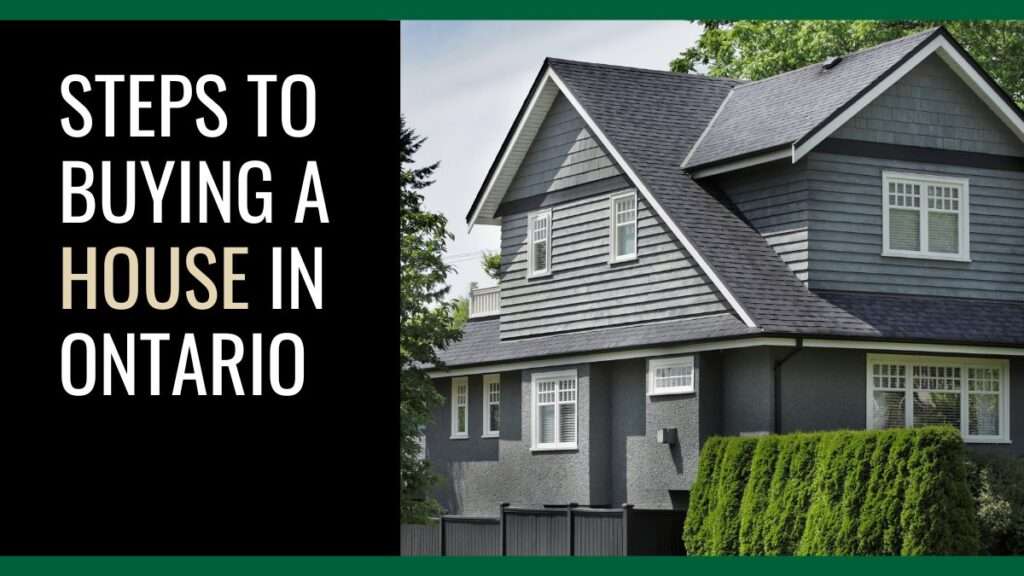Buying your first home in Canada is a moment you will always remember. It is exciting, inspiring, and honestly a little overwhelming too. You are not just buying a house. You are creating a space for your life, your milestones, and your memories.
Many first-time buyers feel unsure when it comes to mortgages, down payments, neighborhoods, and all the extra costs that pop up. It can feel like standing at the bottom of a huge mountain, wondering if you are ready to climb.
That is where AJP Mortgage can help. We guide first-time buyers through every step, offering clear advice on the steps to buying a house for the first time Canada. We answer your questions, explain things in simple terms, and help you make choices that really fit your life and goals.
This guide will take you from saving for your first down payment to moving into your new home. You will see real stories from buyers across Canada, practical examples, and tips to avoid stress and surprises. By the end, you will feel more confident and ready to take that first step.
Steps to Buying A House for the First Time Canada
Buying your first home in Canada can feel exciting and overwhelming. This guide makes the steps simple, clear, and stress-free.
Step 1 Are You Truly Ready to Buy
Buying a home is not just about having money in the bank. It is about knowing your lifestyle and your future plans. You need to ask yourself questions like
Real Buyer Story
Emma from Calgary had saved thirty thousand dollars for a down payment and was ready to buy a condo. She was also planning to go back to school in two years. With advice from AJP Mortgage she decided to keep renting. This gave her more flexibility, less stress, and the chance to save even more.
Pro Tip: Try a three-month simulation. Set aside the amount you would pay for mortgage, taxes, and utilities. If you can manage it without stress it is a good sign you are ready to buy.
Step 2 Understanding Your Budget
Before looking at homes you need to know your budget. Many first-time buyers get excited and start dreaming before knowing what they can realistically afford. Knowing your budget helps you focus and reduces stress.
How Lenders Look at Affordability
Lenders in Canada look at two important measures
| Measure | What It Means | Maximum Recommended |
| Gross Debt Service GDS | Monthly housing costs including mortgage, taxes, heating, and condo fees | 39 percent of your gross monthly income |
| Total Debt Service TDS | Total debts including housing, car loans, credit cards, and student loans | 44 percent of your gross monthly income |
Example
If your annual income is eighty thousand dollars which is about six thousand six hundred sixty-seven per month
GDS maximum is about two thousand six hundred per month for housing
TDS maximum is about two thousand one hundred if you pay five hundred dollars per month for a car loan
This could mean a mortgage of five hundred thousand to five hundred fifty thousand dollars.
Real Buyer Story
Lucas and Nina in Mississauga were approved for seven hundred thousand but chose a townhouse for six hundred thousand. This gave them room for daycare, a new car, and savings. Their monthly life felt much less stressful.
Things Often Forgotten
Utilities, home insurance, and property taxes
Lifestyle changes like having children, changing jobs, or buying a second vehicle
Pro Tip: Keep ten to fifteen percent of your monthly budget as a cushion for surprises. Homes always come with unexpected expenses.
Step 3 Saving for Your Down Payment
The down payment is often the biggest challenge.
Minimum Down Payments in Canada
| Home Price | Minimum Down Payment |
| Under five hundred thousand | 5 percent |
| Five hundred thousand to nine hundred ninety-nine thousand | 5 percent on first five hundred thousand plus 10 percent on the rest |
| One million and above | 20 percent |
For example a five hundred fifty thousand home requires a minimum down payment of thirty-five thousand dollars.
Extra Costs to Plan For
These can add one and a half to four percent of the purchase price.
Ways to Boost Your Down Payment
Home Buyers Plan HBP allows borrowing up to sixty thousand dollars from your RRSP tax-free
First Home Savings Account FHSA lets you save up to eight thousand dollars annually tax-free
Tax-Free Savings Account TFSA grows your savings without taxes
Gifts from family are often allowed by lenders if not structured as a loan
Real Buyer Story
Priya from Vancouver used twenty-five thousand from her FHSA and thirty thousand from her RRSP through HBP. Without these programs she would have waited years to buy her condo.
Pro Tip: Automate savings. Even five hundred dollars per month adds up and grows faster in a high-interest savings account or short-term GIC.
Step 4 Checking and Building Your Credit Score
Your credit score affects mortgage approval and interest rates.
| Score | Rating | Implication |
| 680 plus | Excellent | Best rates and options |
| 620 to 679 | Acceptable | Higher rates and fewer options |
| Below 620 | Challenging | May need larger down payment or co-signer |
How to Improve Your Credit
Real Buyer Story
Alex had a score of 640. By paying down credit cards and setting up automatic payments he raised it to 705 in under a year and saved almost two hundred dollars per month.
Pro Tip: Do not close old credit cards. Longer credit history helps your score.
Step 5 Getting Pre-Approved
Think of pre-approval as your shopping passport. It shows sellers you are serious and lets you focus on homes you can afford.
Real Buyer Story
Sara in Mississauga got pre-approved and made an immediate offer on a condo she loved. She beat two other buyers.
Key Detail
Pre-approval also highlights weak spots in your finances like high debt or inconsistent income before making an offer. It often locks in an interest rate for ninety to one hundred twenty days.
Must Check: SSIP Secondary Suite Incentive Program
Step 6 Understanding Mortgage Options
Mortgages sound complicated but can be simple.
Fixed-rate mortgage keeps your monthly payment the same
Variable-rate mortgage can go up or down with interest rates
Amortization is how long it will take to pay off your mortgage usually twenty-five years
Term is the length of your mortgage agreement usually five years
Real Buyer Story
John picked a fixed-rate mortgage for certainty. Mike chose variable-rate and initially saved three hundred dollars per month but later payments rose. Both made choices that matched their comfort level.
Extra Tips: Shorter amortization pays off faster but monthly payments are higher, also check for prepayment or extra payment fees
Step 7 Choosing the Right Neighborhood
Your home is more than walls. Location matters.
Real Buyer Story
Emily almost bought a downtown Toronto condo. Perfect inside but too noisy. She chose a quieter area near transit and was happier.
Pro Tip: Visit the neighborhood at different times and check online for crime rates and school ratings.
Step 8 House Hunting
House hunting is exciting but emotions can cloud judgment.
Real Buyer Story
Raj wanted three bedrooms but fell in love with a two-bedroom condo. His realtor reminded him to follow the checklist. He ended up buying a three-bedroom townhouse.
Hidden Factors
Storage, parking, sunlight, and outdoor space matter more than finishes.
Must Check: The Ultimate First-Time Homebuyer Education Program
Step 9 Making an Offer
Include price, deposit, conditions, and closing date.
Real Buyer Story
Mark added an inspection condition. Water damage in the basement was found and repaired before closing, saving him thousands.
Pro Tip: Never skip inspections and use conditions wisely.
Step 10 Inspection and Appraisal
A home looks great, but you need to know what’s under the surface.
Check structure, plumbing, electrical, HVAC, and roof
Look for signs of damage, leaks, or needed repairs
Appraisal confirms the home’s value for your lender
Real Buyer Story
James loved a house in Mississauga, but the inspection showed a leaking roof and old wiring. He negotiated repairs with the seller and avoided costly surprises.
Pro Tip: Attend the inspection if you can. Ask questions, take photos, and review the report carefully. Small issues can sometimes be negotiated or fixed after moving in.
Step 11 Closing Day
Lawyer finalizes paperwork, lender sends funds, you get the keys.
Real Buyer Story
Lisa noticed a broken window during the final walkthrough. The seller replaced it before move-in.
Step 12 Settling In
Hidden Costs
Landscaping, lawn care, furnace filters, snow removal, pest control
Seasonal Advice
| Season | Tips |
| Spring Summer | More listings, higher competition, good for summer move-ins |
| Fall | Fewer buyers, sometimes better deals |
| Winter | Serious sellers, less inventory, heating issues easier to spot |
Property Type Comparisons
| Type | Pros | Cons |
| Detached | Privacy, space | Higher maintenance, cost |
| Townhouse | Moderate size, lower maintenance | Shared walls, less privacy |
| Condo | Low maintenance, amenities | Condo fees, less privacy |
Real Buyer Stories
Priya chose a condo for less maintenance. Lucas chose a townhouse for more space and still less upkeep than a detached home.
Still Confused? Grab This: The Ultimate First-Time Homebuyer Education Program
Common First-Time Buyer Mistakes
Buying your first home is exciting, but it’s easy to slip up if you’re not careful. Here are some mistakes to watch out for:
Spending all your budget: Going all-in on a house can be stressful. Leave some room for bills, groceries, and life’s surprises.
Forgetting extra costs: Closing costs, inspections, moving, and small repairs add up fast. Don’t forget to factor them in.
Skipping pre-approval: Without pre-approval, you won’t know your real budget, and you could miss out on homes you like.
Waiving inspection: Skipping the inspection might seem fast, but hidden problems can cost a lot later.
Ignoring long-term needs: Think about the future: kids, commuting, schools, and resale value. Don’t just buy for now.
Not considering taxes or fees: Property taxes and condo fees affect your monthly budget. Make sure you include them.
Following trends or friends: Just because it works for someone else doesn’t mean it’s right for you.
Overlooking maintenance: Homes need care. Older homes may need repairs, and even new ones can have surprises.
Rushing the decision: Don’t hurry. Take time to research neighborhoods, compare homes, and check your budget.
Not asking for help: Mortgage brokers, realtors, and lawyers can guide you. Experts make the process smoother and less stressful.
Final Thoughts
Buying your first home in Canada is a big step but careful planning and expert guidance make it manageable. With AJP Mortgage first-time buyers get clarity, confidence, and support at every stage.
Save and plan your down payment
Understand your budget and comfort zone
Get pre-approved for the right mortgage
Choose the neighborhood and property that fits your lifestyle
Conduct inspections and plan for hidden costs
Plan for ongoing maintenance and unexpected expenses
Your first home is the start of building equity and a space that belongs to you. Step by step with guidance from experts you can enjoy the process and make confident decisions.
Contact AJP Mortgage today for personalized first-time buyer guidance across Canada. We make home buying clear, simple, and stress-free.
Frequently Asked Questions
Can I buy a home with a low credit score?
Yes, you can. You might need a bigger down payment or someone to co-sign, and your interest rate could be higher. A mortgage broker like AJP Mortgage can help you find lenders who will work with your situation.
Should I go to a bank or a mortgage broker?
A broker like AJP Mortgage looks at many lenders to find the best deal for you. Banks only offer their own options, so you could miss out on better rates or more flexible terms.
How much should I save for emergencies?
Try to save at least three months of living expenses. It’s also smart to have a little extra for repairs or unexpected costs so you don’t get caught off guard.
Condo or house, which is better?
Condos are easier to take care of but have monthly fees. Houses give you more space and freedom but need more work. Think about your lifestyle and what matters most to you.
How long does it take to buy a home?
Usually three to six months from getting pre-approved to closing. A mortgage broker can make it smoother and faster by handling the paperwork and coordinating with lenders.
Sources
First-Time Home Buyer Incentive – https://www.cmhc-schl.gc.ca/consumers/home-buying/first-time-home-buyer-incentive
Mortgage Loan Insurance – https://www.cmhc-schl.gc.ca/consumers/home-buying
Housing for Newcomers – https://www.cmhc-schl.gc.ca/professionals/industry-innovation-and-leadership/industry-expertise/resources-for-mortgage-professionals/housing-for-newcomers


